
“A Piece of My Mind”
March 2021 Newsletter
Advancing Christian Faith and Values,
Defending Religious Liberty for All,
Supporting Civility and the Common Good
through Preaching, Teaching, Writing, Activism and Reasoned Conversations

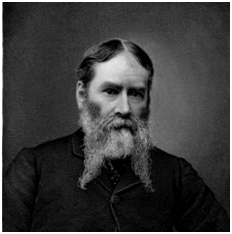
“Once to every man and nation comes the moment to decide,
In the strife of Truth with Falsehood, for the good or evil side.”
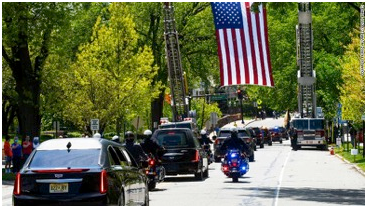 Back The Badge
Back The Badge
“Blessed are those who
maintain justice.” – Psalm 106:3
Record-Breaking Line-of-Duty Deaths in 2020
“Under 100” is the on-going goal in law enforcement for annual deaths in the line of duty (LODD). The number of deaths in 2019 was 148. On “9/11” alone 72 law enforcement officers died in the terrorist attacks at the World Trade Center (343 firefighters also died). In fact, some officers still die each year due to “9/11”—24 in 2019.
But the total LODD in 2020 rose to 328—more than double 2019. Why?
COVID-19
 Captain Jonathan Parnell of the Detroit Police Department was the first to die of COVID on March 24. The last, on December 31, was Officer Troy Adkins, U.S. Department of Homeland Security – Customs and Border Protection. In between, 208 LODD were from COVID-19. A distant second was gunfire (50), followed by automobile crashes (20) and vehicular assault (13). *
Captain Jonathan Parnell of the Detroit Police Department was the first to die of COVID on March 24. The last, on December 31, was Officer Troy Adkins, U.S. Department of Homeland Security – Customs and Border Protection. In between, 208 LODD were from COVID-19. A distant second was gunfire (50), followed by automobile crashes (20) and vehicular assault (13). *
And the total will grow. “In addition, a further 200+ potential line of duty COVID deaths are still pending verification, which means that 2020 may end up being the deadliest year for law enforcement in all of U.S. history.” Officers doing border security and working in corrections account for a very high, disproportionate number of COVID deaths.
Our deepest gratitude and support must go to those in Law Enforcement who willingly expose themselves to danger, including this most unexpected cause of death, in order to protect and serve the people.
* All statistical information and names are from Officer Down Memorial Page.
George Shultz – Quiet Voice of Leadership & Reason
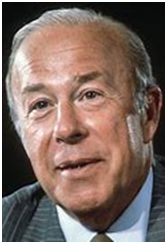 George Shultz, who died February 6 at the age of 100, was secretary of state to President Reagan, among other roles. He was most instrumental in ending the Cold War.
George Shultz, who died February 6 at the age of 100, was secretary of state to President Reagan, among other roles. He was most instrumental in ending the Cold War.
Henry Kissinger, national security advisor and secretary of state during the Nixon administration, spoke of him thus:
His calm demeanor made him influential in interagency discussions. Colleagues knew that when he raised issues, it was out of deep concern. Never seeking personal advancement, always expressing sincere convictions, George invariably became a driving force on every committee.
For all his proximity to presidents and important roles, George was never seduced by the trappings of power. “It’s a great mistake to want the job too much, because then you do things to keep the job that you probably wouldn’t do otherwise,” he once said.
Nothing captures the range of his reflections better than a prayer he delivered in July 2016 for an interfaith group concerned with nuclear weapons: “Dear God, please bring common sense and Divine guidance to our work on the problems that nuclear weapons pose to our world. Man has invented a means to destroy us all. We must 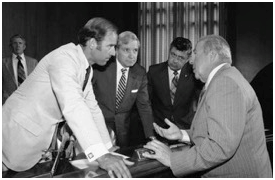 eliminate these weapons in order to preserve a sane and peaceful world. We pray for your help as we work toward this goal.”
eliminate these weapons in order to preserve a sane and peaceful world. We pray for your help as we work toward this goal.”
George’s outstanding attribute was his combination of wisdom and humility. Solomon’s prayer was for “a discerning heart,” and that blessing was extended to George. As a statesman, he would gain the whole world yet never forfeit his soul.
– Excerpts from “George Shultz Had a Wise and Discerning Heart,”
by Henry Kissinger, The Wall Street Journal, February 11, 2021
Picture: Secretary of State George Shultz in 1982 with members of the Senate Foreign Relations Committee. Senator Joe Biden is to the left.
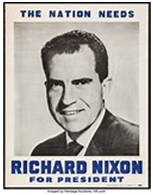 Richard Nixon and the Election of 1960
Richard Nixon and the Election of 1960
I became interested in politics in 1960, once standing for hours to be right in front of the podium when John F. Kennedy came to my hometown during the campaign. As a college student in northern Indiana majoring in social studies (62-66), I studied government and learned about Chicago politics a hundred miles up the road.
Chicago was Mayor Richard J. Daley’s fiefdom and, as the story goes, he would withhold votes during elections until he knew how many votes were needed.
Richard Nixon lost the 1960 election by losing Illinois.
In his autobiography Nixon says (p. 224), “Washington journalist Ben Bradlee, a close friend of Kennedy, wrote in his book Conversations with Kennedy that Kennedy called Mayor Daley on election night to find out how things were shaping up in Chicago. ‘Mr. President,’ Daley reportedly said, ‘with a little bit of luck and the help of a few close friends, you’re going to carry Illinois.’”
Many, including President Eisenhower, urged Nixon to contest the election and not concede. Nixon decided not to contest:
A presidential recount would require up to half a year, during which time the legitimacy of Kennedy’s election would be a question. The effect could be devastating to America’s foreign relations. I could not subject the country to such a situation. And what if I demanded a recount and it turned out that despite the vote fraud Kennedy had still won? …I made my decision and sent Kennedy a telegram conceding the election.
Illinois again proved pivotal in 1968—it was well into the next morning when tired network newscasters reported Nixon slightly ahead of Hubert Humphrey in Illinois, but enough to win it and give Nixon the presidency.
Forward to the 1972 election. President Nixon determined that this time, in his final election, his side would give it their all and take no chance on a sliver-close election. One result was an overwhelming victory for Nixon over George McGovern. Another result was a break-in at the Watergate headquarters of the Democratic Party. And, as they say, “The rest is history.”
Bible Insight –Servants of God Who Served the People
Three “servant-leaders” in the Old Testament are major role models for us.
First is Joseph. The story is in Genesis 37 and 39-50—the largest segment of the 50 chapters in Genesis. The story starts with Joseph sensing he is a man of destiny. His father dotes on him; his brothers tire of his boasting about his dreams of him ruling over them. Even his dad got irritated at one point: “Will your mother and I and your brothers actually come and bow down to the ground before you?” (Genesis 37:10)
Joseph reminds us of a quite obnoxious form of spirituality—pride over one’s perceived elevate role in the work of God. He will be taken down a few notches before he is matured, chastened, and ready to lead. As a king would later learn, “Those who walk in pride [God] is able to humble” (Daniel 4:37).
Joseph was sold into slavery by his brothers and ended up in an Egyptian prison. Life can be very unfair. But he is eventually elevated to second in the kingdom just in time to lead the people through years of abundant harvests and horrible famine (41:33-40). We could use leaders like this today, through this time of national crisis.
Joseph eventually is reconciled with his brothers who had done him much evil. His father and family moved to Egypt and were cared for during the famine. When his father died, his brothers feared Joseph might now take revenge. Their words of sincere contrition instead brought him to tears and he responded with one of the best statement ever said on how God can fulfill his good purposes even through the evil intentions and deeds of man.
“You intended to harm me, but God intended it for good to accomplish what is now being done, the saving of many lives” (50:20). Joseph speaks timeless words about God’s providence and care for humanity. Using one’s skills, position and resources to save lives and alleviate human suffering is a most worthy way to live—honorable both in the eyes of God and man.
Second is Daniel. His story unfolds in the book bearing his name. He is one of an elite group of Jewish captives who would attain leadership roles in the Neo-Babylonian Empire (626-539 BC).
Daniel and the young Jewish men with him were endowed by God with great wisdom (Daniel 1:17). In time they entered the king’s service (a bumpy, life-threatening experience, as seen by the story of the fiery furnace in Daniel 3). Daniel interpreted Nebuchadnezzar’s dream of a great image and earned the king’s high respect (2:46-49).
Daniel also interpreted the king’s dream that foresaw his seven years of insanity, which Daniel interpreted as a judgment for the king’s pride (“You will be driven away from people and will live with the wild animals…seven [years] will pass by for you until you acknowledge that the Most High is sovereign over the kingdoms of men and gives them to anyone he wishes” (4:25). The discipline came to pass and achieved its purpose (4:34).
Daniel would later interpret the famous “handwriting on the wall” – God’s message of doom for King Belshazzar (6:26-27). That very night the king was killed and his kingdom passed into the hands of the Medes and Persians.
Daniel continued his “public service” under the Persians. He served Darius the Mede loyally and without corruption or compromise.
In Daniel, I see the dignity of public service even though the government was not “Christian” as we’d put it today. The Bible is quite realistic about human government—it is God’s provision for human well-being and safety but also prone to corruption and great harm when it forsakes its mandate for enlightened rule. People of deep religious commitment, like Daniel, can serve the state honorably. Yes, there will be spiritual pitfalls and sometimes those serving on the team may even have to terminate their work (or be terminated!). But the effort is pleasing to God and beneficial to people.
 I’m also impressed with how Daniel earned the right to be heard, even to be able to tell a proud and ruthless king what he didn’t want to hear. After Daniel told the king the dream’s warning of his impending insanity, Daniel held out a word of hope: “Therefore, O king, be pleased to accept my advice: Renounce your sins by doing what is right, and your wickedness by being kind to the oppressed. It may be that then your prosperity will continue” (4:27).
I’m also impressed with how Daniel earned the right to be heard, even to be able to tell a proud and ruthless king what he didn’t want to hear. After Daniel told the king the dream’s warning of his impending insanity, Daniel held out a word of hope: “Therefore, O king, be pleased to accept my advice: Renounce your sins by doing what is right, and your wickedness by being kind to the oppressed. It may be that then your prosperity will continue” (4:27).
Third, we learn about Nehemiah from the book that bears his name—a book worth reading. It describes the work of this outstanding leader, who served as cupbearer to King Artaxerxes and was part of the king’s inner circle.
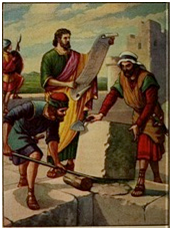 Nehemiah was greatly distressed when he heard that the walls of far-away Jerusalem lay in ruins—the place that was once King David’s royal city. This was around 444 BC, a century after the end of the Babylonian Captivity. With permission and provisions from the king, Nehemiah travelled to Jerusalem, rebuilt the walls, restored a sense of community in the city, protected the people from surrounding enemies, and revitalized worship and obedience to God.
Nehemiah was greatly distressed when he heard that the walls of far-away Jerusalem lay in ruins—the place that was once King David’s royal city. This was around 444 BC, a century after the end of the Babylonian Captivity. With permission and provisions from the king, Nehemiah travelled to Jerusalem, rebuilt the walls, restored a sense of community in the city, protected the people from surrounding enemies, and revitalized worship and obedience to God.
I’m impressed, as anyone would be who reads the short book, how much Governor Nehemiah was a man of prayer. He is a role model for all spiritual leaders, who stand convicted of shortcomings in our own prayer lives.
His economic reforms and personal sacrifices are apparent in the fifth chapter. Many of his Jewish countrymen had lost their properties (their source of income) and were in debt to those who were economically empowered. Nehemiah listened to their pleas, pondered his course of action, then confronted the creditors: “You are exacting usury from your own countrymen and selling your brothers! Give back their land and houses! Return the money you exorbitantly took from them!” See Nehemiah 5:3-13.
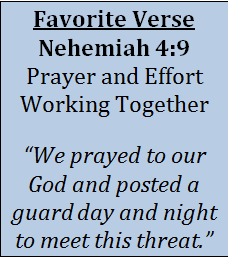 Moreover, Nehemiah did not eat the food allotted to him as governor, thus relieving the tax burden placed on the people by earlier governors. “Out of reverence for God I did not act like that” (5:15). What Nehemiah did do was to invite people to eat at his table—150 of them at a time! And eat well they did—oxen, sheep and poultry with an abundant supply of wine. But Nehemiah refused to tax the people for his culinary enjoyments.
Moreover, Nehemiah did not eat the food allotted to him as governor, thus relieving the tax burden placed on the people by earlier governors. “Out of reverence for God I did not act like that” (5:15). What Nehemiah did do was to invite people to eat at his table—150 of them at a time! And eat well they did—oxen, sheep and poultry with an abundant supply of wine. But Nehemiah refused to tax the people for his culinary enjoyments.
I honor Nehemiah for his enlightened leadership, service to his people and his conservation of the people’s hard-earned tax money. Surely God will honor him too, in answer to his prayer, “Remember me with favor, O my God, for all I have done for these people” (5:19). A fine leader. Politicians should emulate him!
Religious Liberty Vigilance –
Why I Oppose the “Equality Act” (H.R. 5)
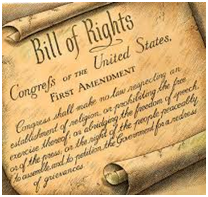 “No provision in our constitution ought to be dearer to man, than that which protects the rights of conscience against the enterprizes of the civil authority.”
“No provision in our constitution ought to be dearer to man, than that which protects the rights of conscience against the enterprizes of the civil authority.”
– Thomas Jefferson
I write this in haste, because the U.S. House of Representatives has just passed H.R. 5 – the so-called “Equality Act.” I plan to say more in my April Newsletter after I study details more thoroughly, but I am compelled to speak out now.
If I had read nothing else in this bill other than Section 1107, I would oppose it on this wording alone:
The Religious Freedom Restoration Act of 1993 shall not provide a claim concerning, or a defense to a claim under, a covered title, or provide a basis for challenging the application or enforcement of a covered title.
The Religious Freedom Restoration Act protects the rights of religious organizations and individuals to practice their own beliefs and prevents them from being forced to violate those beliefs. Only in a case of “compelling state interest” may a government override the religious practices of the people, and then only by using the least intrusive means.
The “Equality Act” will force significant violations of religious conscience as people of faith strive to practice their faith through their vocations and community ministries. It should be opposed unless it has major revisions.
First Amendment Vigilance – Freedom of Speech
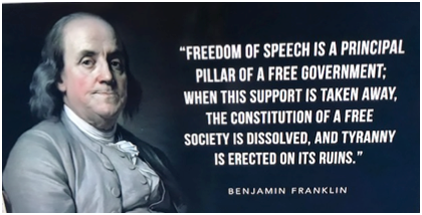 The freedoms of religion, speech, the press, peaceful assembly and petition of government are all guaranteed in the First Amendment. I see these freedoms standing or falling together.
The freedoms of religion, speech, the press, peaceful assembly and petition of government are all guaranteed in the First Amendment. I see these freedoms standing or falling together.
When I taught theology to graduate and undergraduate students I used to hand out a sheet of paper weeks before the term papers were due titled, “How Not to Get a Good Grade on your Term Paper.”
One point: show your biases throughout your paper. I should be able to read an academic paper on theology and not know what the writer personally believes unless he or she says so upon reaching a conclusion. There shouldn’t be shades of bias (explicit or implicit) while the arguments are being built.
So what’s wrong with this paragraph in The Washington Post (February 12)?
Even before the Capitol riot, police officers in the District were exhausted after months of sustained demonstrations for racial, social and political justice, some of which turned violent. Later, there were more violent confrontations when right-wing extremists came to rally in support of President Donald Trump.
It tells us law enforcement in the District of Columbia faced two kinds of violent protests. One was some demonstrators “for racial, social and political justice.” The other was “right-wing extremists” supporting President Trump.
Now, this is explicit bias. “Some” justice people were violent (i.e., most were not); “right-wing extremists” were violent (no qualification as to “some” or “most” or “all”). And wouldn’t those protesters supporting the president think their cause was also one of social and political justice? What if the writer had used the word “extremists” to describe some of the other protesters? The writer is labeling one protest a “justice” cause and the other “extremism.”
Such judgments belong on the editorial page or in the op-ed section, not in the news section. However, the blurring between objectivity and bias has been growing worse for a long time in news media.
Is it good journalism for The Washington Post to report this way? Not at all! Is this paragraph protected by the First Amendment? Yes, in that the government (local, state, or federal) shouldn’t and can’t do anything to prevent it. Newspapers are not subject to government censors and have the right to police their own material, especially by journalistic standards. News media even have the right to mix reporting with judging, but they aren’t being true to good standards by doing so.
I say newspapers and other forms of journalism (especially TV news) need to build a wall between reporting and opining. But I also say they have the right to be biased if they so choose, or they may choose to strive for balanced commentary. Readers and listeners need to grow discernment antenna and wear “bias revealing” glasses to recognize bias for what it is.
But should the government help, either with the reporting or the opining? There are some in the news media and in government who are concerned about the “inaccuracies” of the press. There have been calls for some form of “truth commission”—what we might label “A Ministry of Truth”.
NY Times tech writer Kevin Roose said President Biden should appoint a “Reality Czar” to combat “disinformation and domestic extremism” (Feb. 2).
Horrors! We would have government approval and disapproval of the written and spoken word. We might soon be moving toward government control of published or spoken opinion such as is seen in Communist countries and such as has never been acceptable in this country. Instead, the answer to bad speech is not government judgment, bullying or attempts to control. The answer is free speech. Not less speech, but more.
Disclosures: The above is commentary except when it isn’t. It delivers facts when it says (1) I handed out a paper to students, (2) The Washington Post had a paragraph on protesters, (3) some want government to police the news media, (4) the First Amendment protects the media. Otherwise, it’s opinion!
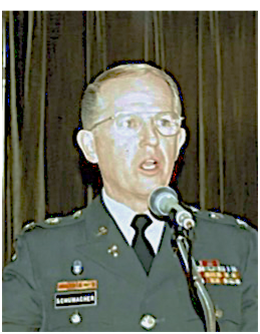 “A Soldier of God” –
“A Soldier of God” –
My Personal Tribute
I lost a dear friend in February—one of the most significant persons I’ve known.
Col. John W. Schumacher was a career
(30-year) Army chaplain.
Col. Schumacher saw combat during two tours of duty in Viet Nam. He recalled praying “The Lord’s Prayer” on a field of combat with many an injured or dying soldier. His obituary reads: “He is a graduate of the U.S Army Command and General Staff College, and the United States Army War College where he later was assigned as faculty to teach Ethics. He served in several senior chaplain positions but never forgot serving the soldiers in their units. He is the author of A SOLDIER OF GOD REMEMBERS.”
John once served General Norman Schwarzkopf, who led the “Operation Desert Storm” action liberating Kuwait from Saddam Hussein’s invasion in 1990. The general put in a request for John to be his personal chaplain during that military action, but John’s commanding officer at the Army War College vetoed it because of his valuable role as a teacher of ethics.
After retiring from the military, John served for 22 years as Military Endorsing Agent for my denomination, the Fellowship of Grace Brethren Churches (every chaplain must have an endorsement from an ecclesiastical body).
He also served as a chaplain for three law enforcement agencies.
John had great influence on me personally and on my work as a police chaplain. I was privileged to assist him in his endorsement responsibilities.
John served his country and his God faithfully, for which we all may give heartfelt thanks.
Some Final Words…
Cherokee Nation allows descendants of its Black slaves to attain full tribal membership
The Cherokee tribe’s constitution has contained a “blood clause” that only allowed “descendants by blood” to be tribal members.
“Descendants of black people once enslaved by the Cherokee Nation, known as Freedmen, have long been fighting to win equal status as members of the tribe. This would include the right to run for tribal office and receive full benefits, such as access to health care and housing.”
The “blood clause” was removed in light of a federal court ruling based on an 1866 treaty that laid out terms of emancipation for the tribe’s slaves. The ruling said that Cherokee Freedmen should have all the rights that tribal citizens have.
There are thousands of descendants of black people who were enslaved by the Cherokee Nation prior to the Civil War. The practice of slavery within many Indian tribes is an aspect of the history of slavery in America that is largely unknown or unmentioned. (Source: “Feedspot” for February 26, 2021)
The President is not “Our Commander-in-Chief”!
The President is Commander-in-Chief of the Armed Forces. He’s not “our” Commander-in-Chief, as was often said one way or another during the impeachment process. He does not give orders on what to do or not to do.
At least not yet.
Members of Congress and others should refrain from this designation, even though it suits the purposes of those who use it.
www.donaldshoemakerministries.com
Contact: donaldshoemakerministries@verizon.net
Don has been a member of the clergy in the Long Beach CA area since 1970. He serves currently as Pastor Emeritus of Grace Community Church of Seal Beach (where he was senior pastor 1984-2012) and as Senior Chaplain of the Seal Beach Police Department. He previously served as a professor of Biblical Studies at Biola University and chaired the Social Concerns Committee in the Fellowship of Grace Brethren Churches from 1985 to 2019. His graduate work includes a master’s degree in theology from Fuller Theological Seminary with a concentration in Christian ethics.

